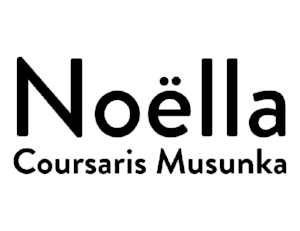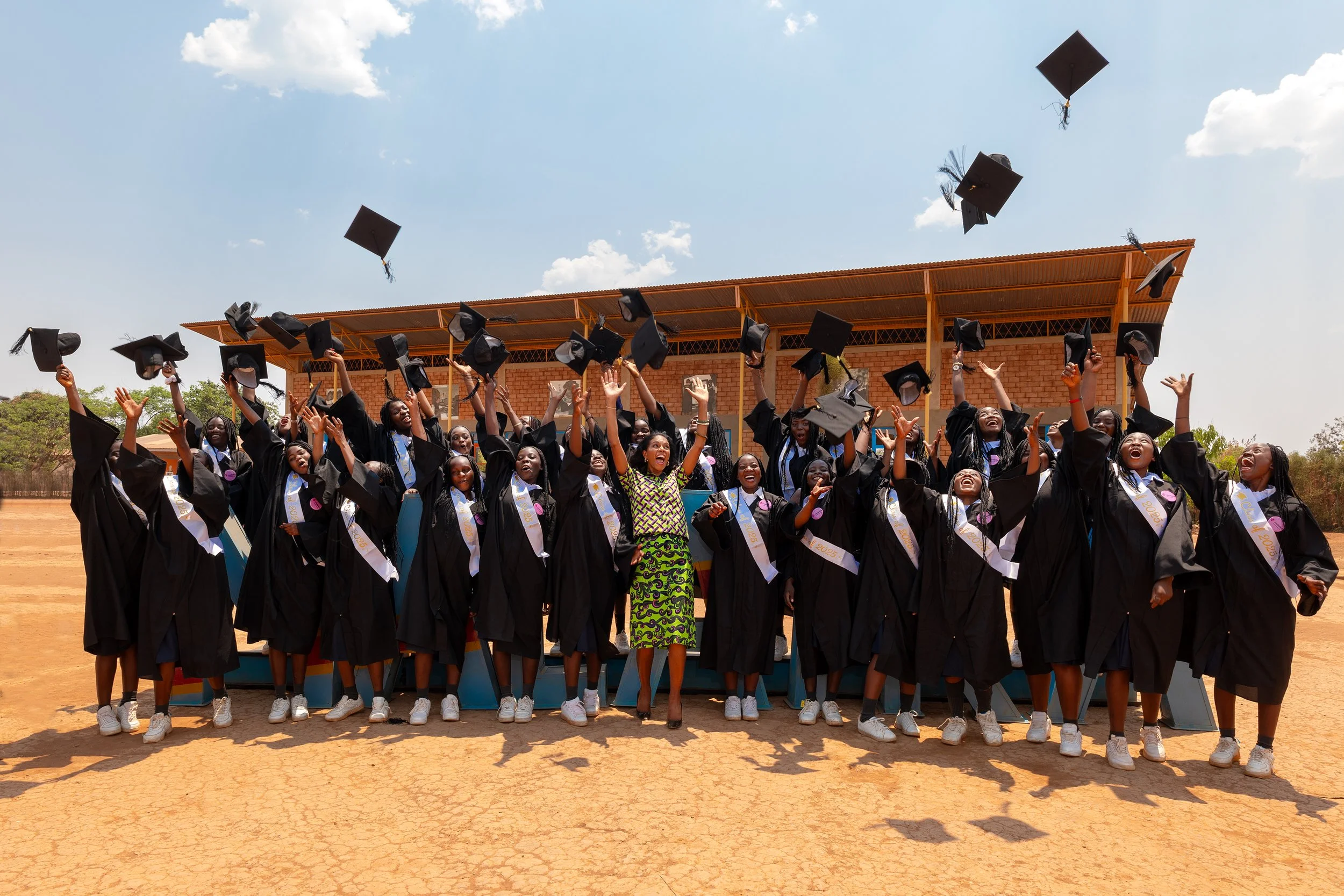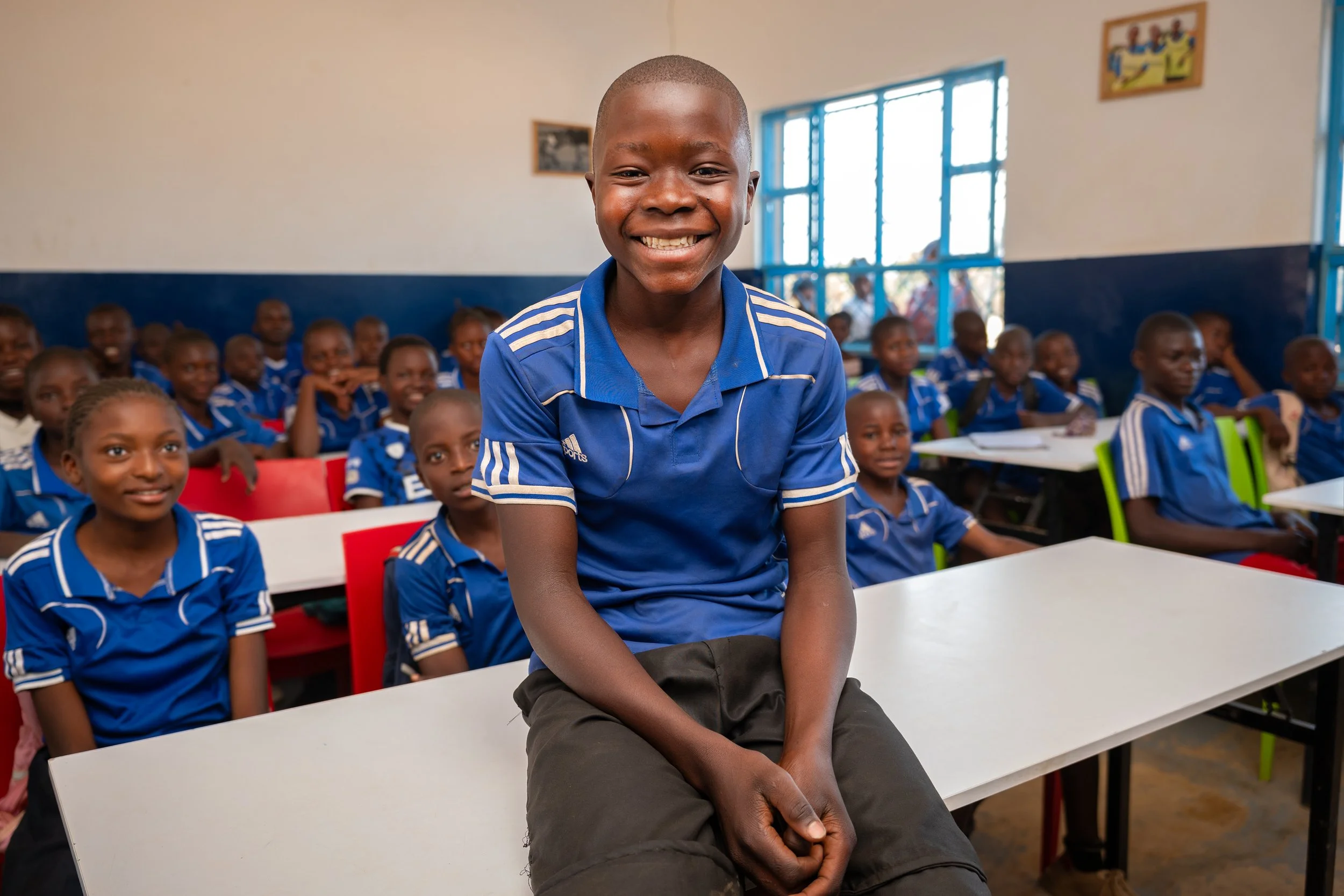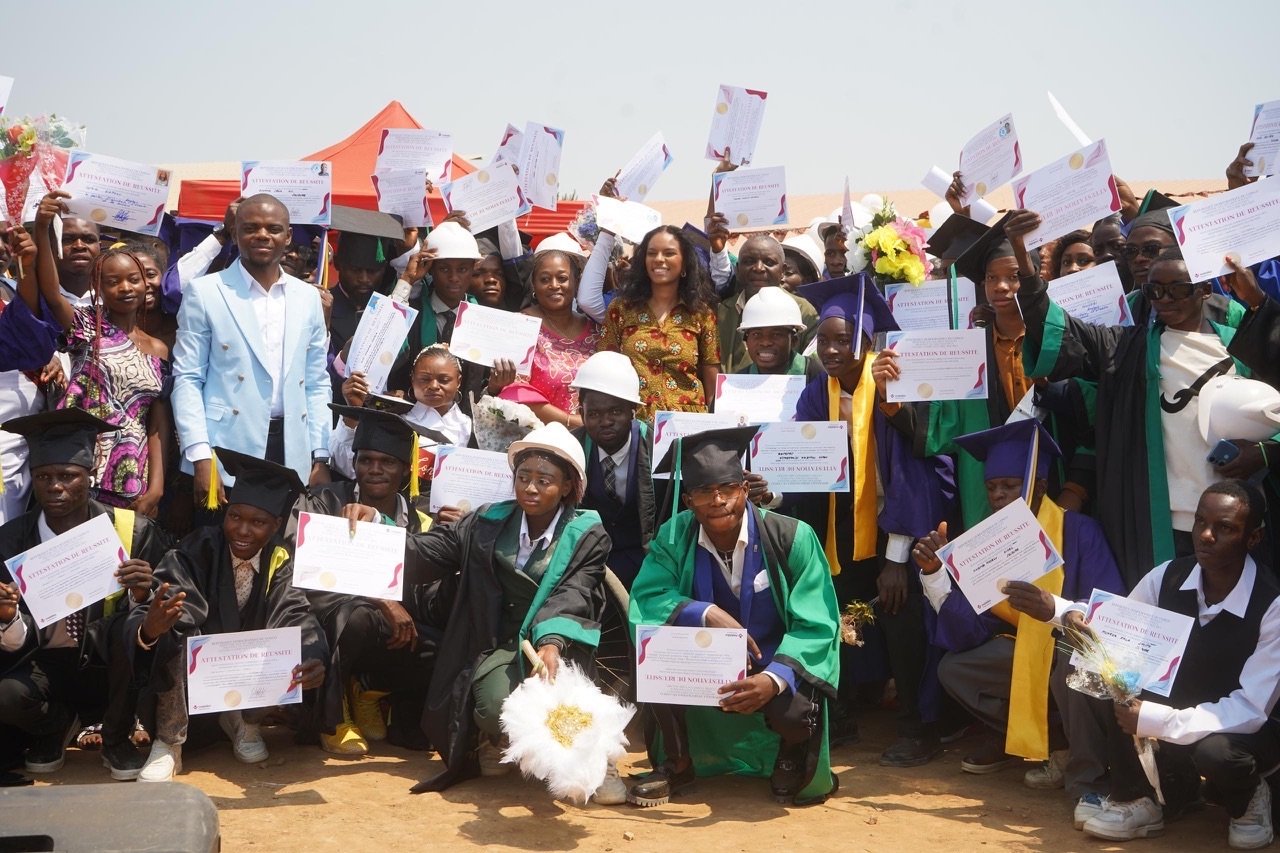Advocacy
Noëlla champions girls’ education as being the key to unlocking the potential of our next generation and society as a whole. Both Noëlla and Malaika have been propelled onto the global stage through their success and impact.
Noëlla has shared her insights about education at a number of world-class forums including the World Economic Forum in Davos and at universities such as Cambridge, Oxford, Harvard, and MIT. She also spoke at various event during UNGA, Goals House ( Collective Power with Service Now and Girls Opportunity Alliance ), Leading by design session at SDG Lounge, Concordia, the London Stock Exchange she was a Keynote speaker at the Salesforce during Black History Month, as well at the Greentech Festival. She has also worked with UNICEF, numerous global corporations and is a Concordia Advisor.
She was named one of the BBC’s 100 Most Influential & Inspirational Women of the Year. More recently, Noëlla received an award from the House of Mandela at the Nelson Mandela centenary celebration, Muhammad Ali Foundation ‘Daughters of Greatness’ prize, Agents of Change and To Get There 2024 Humanitarian Award.
Additionally, Noëlla sits on the Advisory Board of Concordia, Segal Family Foundation, L'Oreal Fund for Women; she is a member of the United Nations Conscious Fashion and Lifestyle Network; and she has been a judge for EY’s Entrepreneur of the Year award three times. Throughout her modeling career, Noëlla has held the value of ‘modeling with meaning’ and has collaborated on projects with brands that help support or raise awareness of her philanthropic work.
the global fund
To Fight AIDS, Tuberculosis and Malaria
In 2017, Noëlla was named Ambassador for The Global Fund to Fight AIDS, Tuberculosis & Malaria, the world’s largest financier of programs combating these diseases through partnerships between governments, civil society, and the private sector.
This is a deeply personal relationship for Noëlla. She accepted this honor in memory of six-year old Miriam, a Grade 1 student who passed away in December 2015, due to complications from malaria, when the school was closed during the Christmas vacation.
Malaika had to close on 19th of March 2020 due to the Coronavirus pandemic. The school was able to reopen in the summer but unfortunately had to close again in response to government guidelines. Sadly, during the periods of closure we lost three students, Leya, Esther Annie, and Noella. They all passed away as a result of contracting malaria. The pain of these losses has fuelled Noella’s passion to serve in this role for The Global Fund.
Philanthropy
In 2007, Noëlla founded Malaika, a grassroots nonprofit that educates and empowers girls and their communities. The foundation operates in Kalebuka, a village 45 minutes away from Noëlla's hometown of Lubumbashi in the Democratic Republic of the Congo.
Malaika has five components: an accredited school; a community center; technical programs in collaboration with Caterpillar Foundation, training young adults on real equipment as mechanics, electricians, carpenters and dwellers; a clean water program with the building and refurbishment of 32 wells; and an agriculture program. Malaika is an ecosystem and a community-driven model that can be duplicated anywhere in the world.
Noëlla volunteers her time and skills to the charity, alongside a global team of professionals who also provide their expertise on a pro-bono basis. Malaika’s success to date has been the result of the dedication and hard work of a team of Congolese staff members working on the ground and around-the-clock support from a team of volunteers across the world.
85% of every dollar donated to Malaika goes directly to the organization with the remaining 15% covering essential administrative costs necessary to running the programs.
Malaika: 18 years of impact
Our school
First opening its doors in 2011, the Malaika School provides a free, accredited, and comprehensive education to 430 girls in the village of Kalebuka in the Democratic Republic of the Congo. The holistic curriculum is structured around daily classes in French and English, with subjects spanning STEM (science, technology, engineering, and mathematics) to arts, music, theater, and physical education.
Malaika strives to cultivate the leadership potential of its girls from as early as kindergarten, encouraging involvement in the Girl Scouts as well as field trips and community service projects, such as planting trees or learning about malaria prevention. The Malaika School Library, which was inaugurated by Goodwill Ambassador Eve, is one of its kind in Kalebuka. The library contains both print and e-books on donated Android tablets, giving the girls access to the surrounding literary world.
In addition to providing a high-quality education, the Malaika School provides two nutritious meals each day, using fruit and vegetables grown organically on the school’s premises. The Malaika School is also 100% powered by solar energy.
Malaika equips its girls with the belief to envision a brighter tomorrow and the resources needed to get there. Upon graduating from the school, Malaika seeks to place its students in internships with local companies, in technical schools, in universities and in relevant careers. Crucially, Malaika’s community-driven approach acts as a model that can be replicated in communities around the world.
In 2021, Malaika’s team was deeply honored and proud to win the World Literacy Foundation’s award for significant contribution to literacy by an organization at the World Literacy Awards. In 2023, Malaika received the Peace and Sport Award, moreover it was shortlisted for the QS Reimagine Education Award Access Diversity & Inclusion.
Summer 2023 marked our first graduation, where Eve became our first president of the class, sending our first cohort to international and local universities, in 2024 Dr Maki Mandela was the president of our second cohort, which sent another set of girls leaving Malaika to higher education. In 2025, we celebrated our third cohort with 30 girls taking a step into higher education
MALAIKA COMMUNITY CENTRE
In 2013, Malaika partnered with FIFA to build the Kalebuka Football for Hope Center which has developed into the Malaika Community Center, offering education, health, technical classes and sports programs to 5,000 youth and adults in the village of Kalebuka.
Offerings include a wide range of workshops and initiatives, from the Mama Ya Mapendo (‘Mothers With Love’) program, which teaches women embroidery and sewing skills—as well as financial literacy—to the Drop Malaria program, which raises awareness around malaria prevention through the distribution of 14,000 mosquito nets to the community. Mama Ya Mapendo has progressed to selling their bags and accessories at the school, center, and to the local supermarket, Hyper Psaro.
The Center also provides literacy, sewing, math, and computer classes, and gives students access to the Internet. The Sustainable Pathways project, Malaika’s premier vocational training program, teaches out-of-school youth about conservation farming, entrepreneurship, and enterprise development.
Our Technical Classes
Malaika’s technical program, launched in collaboration with the Caterpillar Foundation in early 2022, trains young women and men aged 18-35 in mechanics and machine operation, as well as in driving and vehicle mechanics/repair.
The first two cohorts of 153 students with 16% of women have successfully completed their training, earning certifications that are nationally recognised and enabling them to pursue high-demand, local jobs. In summer 2024, another building dedicated to carpentry and dwelling will be opening, further expanding our program's offerings. In 2025, we celebrated 250 graduates from Mechanics, Electricity, Plumbing and Welding to Sewing, Catering, Art and advanced IT, these young men and women represent the tangible impact of education in action.
Upon completion of the respective programs, which last 9 and 12 months, students will be equipped with the skills and certifications needed to excel in the local job market.
Our 32 Wells
In rural Africa, women and youth can spend more than one hour on each trip to fetch water, an exhausting and often dangerous chore that robs them of the chance to work and learn. Dirty water, inadequate sanitation and poor hygiene habits play a major role in child mortality.
In order to combat these challenges, Malaika built 32 wells and refurbished four. Having access to clean water in the village has helped decrease the number of cases of cholera, diarrhea and other illnesses. Our 32 wells have a direct and beneficial impact on over 40,000 people a year.
Our wells also provided an opportunity during the COVID-19 pandemic to teach hygiene and infection prevention, supporting the community to stay safe during the pandemic and any future outbreaks.
Our Agriculture
In 2017 we opened a farm at our community center as part of the Sustainable Pathways project. It forms part of the programme to teach out-of-work youth about conservation farming, entrepreneurship and enterprise development. It also serves as a teaching platform to the community at large about sustainable agriculture methods.
Furthermore, our students plant trees and learn how to care for the environment. The farm helps provide two nutritious meals each day to students and staff.














